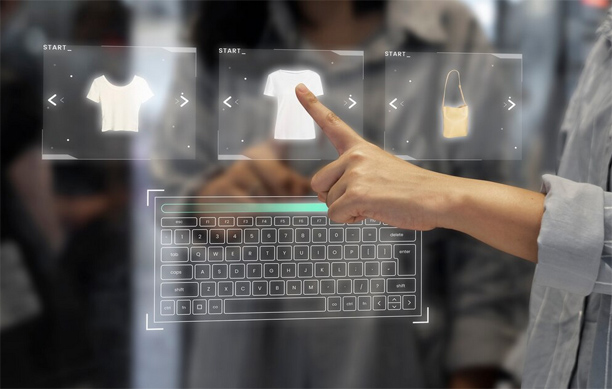
The retail industry constantly changes and adjusts to meet consumers’ evolving demands and preferences. Artificial Intelligence (AI) has played a significant role in personalizing the retail experience, driving its evolution. Given the abundance of data from retail industry email lists, AI can analyze consumer behavior and personalize shopping experiences to meet individual needs.
Understanding Artificial Intelligence in Retail
AI has completely transformed the retail industry, completely changing how retailers engage with customers. So, what is AI, and how does it relate to the retail industry? AI involves machines imitating human intelligence to complete tasks that usually need human intelligence. In the retail industry, AI uses algorithms and data analysis to gain insights into consumer behavior, preferences, and trends. This knowledge enables retailers to offer tailored experiences and suggestions to every customer.
AI in retail extends beyond basic product recommendations. It covers various applications, including customer service chatbots, demand forecasting, inventory management, and pricing optimization. These applications assist retailers in optimizing operations, improving customer satisfaction, and boosting revenue growth.
AI in retail offers benefits for both retailers and consumers. With the help of AI, retailers can customize experiences to suit each person’s unique needs and preferences. Our customers enjoy personalized product recommendations, exclusive offers, and a seamless shopping experience across multiple channels.
AI is revolutionizing the retail industry by helping retailers gain a deeper understanding of their customers and establish stronger connections. It equips retailers with the necessary resources to succeed in a fiercely competitive market while providing consumers a tailored and gratifying shopping experience.
Why Personalization is Crucial for a Great Retail Experience
Customization plays a crucial role in the retail experience, and its significance cannot be emphasized enough. In today’s fast-paced market, consumers have many choices and expect nothing but the best. Retailers are expected to have a good grasp of their customer’s needs and preferences, providing them with personalized recommendations and experiences.
Personalization in retail is essential as it enables retailers to differentiate themselves and foster deeper connections with their customers. Customers are more likely to become loyal and repeat customers when they feel that a retailer understands their preferences and caters to their needs. Studies have shown that personalized recommendations boost customer loyalty by up to 40%.
Personalization not only fosters customer loyalty but also directly boosts sales and revenue. Customers are more inclined to purchase when they receive personalized product recommendations and offers. Research has demonstrated that personalized product recommendations can significantly increase conversion rates. In addition, personalized marketing campaigns have been shown to yield a significantly higher return on investment (ROI) compared to generic campaigns, with a ratio of 5-8x.
Personalization is essential in the retail industry as it enables retailers to establish strong customer relationships, foster loyalty, and boost sales and revenue. With the help of AI, retailers can enhance personalization and create customer experiences that deeply connect.
How Artificial Intelligence Enables Personalization in Retail
AI is crucial for enabling personalization in the retail industry. AI can analyze large amounts of data and provide valuable insights into customer behavior, preferences, and trends. With this data-driven approach, retailers can craft personalized experiences that connect with each customer.
AI facilitates personalization by utilizing recommendation systems. By analyzing previous purchases and browsing habits, AI algorithms can offer customers personalized product suggestions that cater to their preferences. These suggestions improve the customer’s shopping experience and make it more likely for them to purchase.
AI also allows retailers to provide customized pricing and promotions. Through customer data analysis, AI algorithms can calculate the most suitable price for each customer, considering their purchase history, budget, and preferences. This pricing strategy has multiple benefits for retailers, including improved customer satisfaction and increased sales and revenue.
In addition, chatbots and virtual assistants powered by AI improve the customer service experience. AI-driven technologies offer immediate customer support, addressing inquiries, resolving problems, and assisting with purchases. This high level of customer support ensures a smooth and efficient shopping experience.
In retail, AI allows for personalized experiences using data analysis and algorithms to understand better and meet each customer’s unique needs. With the help of AI technologies, retailers can improve customer satisfaction, boost sales, and foster strong customer relationships. AI is crucial in personalizing the retail experience, especially in today’s highly competitive market.
Future Trends: Advancing AI in Retail Personalization
The use of Artificial Intelligence (AI) in customizing the retail experience is constantly changing, with promising upcoming trends. With the rapid advancement of technology, AI is set to impact retail personalization significantly.
AI in retail personalization is set to embrace integrating augmented reality (AR) and virtual reality (VR) technologies as a future trend. Immersive technologies have the power to revolutionize the shopping experience. Customers can now see products and their environments in real time. Picture yourself having the ability to visualize how a piece of furniture would appear in your living room or how a new outfit would fit before making a purchase. Enhancing the shopping experience and boosting customer satisfaction is possible with this level of personalization.
One upcoming trend involves the utilization of voice assistants and smart home devices powered by AI. Thanks to voice-activated technologies like Amazon’s Alexa and Google Assistant, retailers can now connect with customers conveniently. AI voice assistants can offer tailored suggestions, address customer inquiries, and even make purchases on behalf of the customer. This level of convenience and personalization can transform the customer experience with retailers altogether.
In addition, AI is anticipated to enhance its capacity to forecast customer preferences and behavior further. Through extensive data analysis, AI algorithms gain a deeper understanding of customers and can predict their needs more effectively. It can lead to more precise and focused product recommendations, customized offers, and personalized shopping experiences.
Conclusion
Artificial Intelligence (AI) ultimately transforms the retail sector by tailoring the shopping journey to individual consumers. By utilizing AI algorithms and data analysis, retailers can gain valuable insights into consumer behavior, preferences, and trends. It enables them to offer personalized experiences and recommendations. Personalization is essential in today’s competitive market. It allows retailers to establish strong customer relationships, foster loyalty, and boost sales and revenue.
Personalization is crucial for a great retail experience. Meeting customer expectations requires retailers to understand their needs and preferences deeply. Providing personalized recommendations and experiences is critical to achieving this. Studies have demonstrated that customized product suggestions notably impact customer loyalty and conversion rates. In addition, personalized marketing campaigns tend to yield a higher return on investment when compared to generic campaigns.
AI empowers retail personalization through data analysis and algorithms that comprehend and address individual customer needs. Utilizing recommendation systems, personalized pricing, and AI-powered chatbots can significantly improve the customer experience and boost sales.




